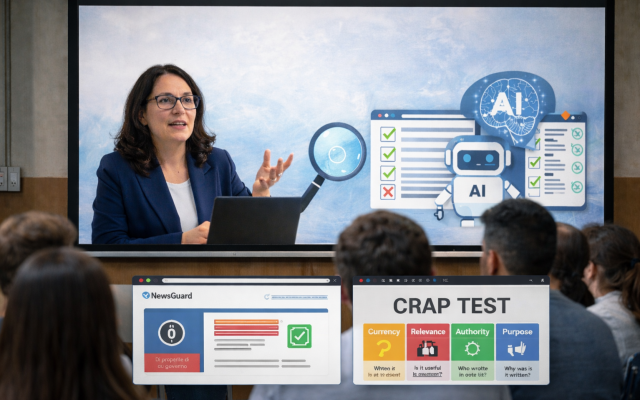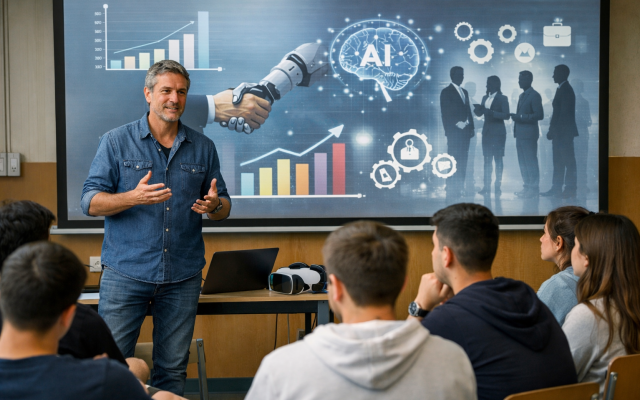Over 250 students and teachers from a number of Italian schools participated in the ““Civic Education 4.0: Living well with others on-line, too” event organised by the Fondazione Mondo Digitale and Microsoft Italy, in collaboration with De Agostini Scuola and the Postal Police and with the patronage of the Roma Semplice Council at the Rome Campidoglio for the 14th edition of the Safer Internet Day.
The results of the new Microsoft Digital Civility Index Study, which were presented today, analyse the habits and perceptions of adolescents (13-17) and adults (18-74) in 14 countries, on digital civic education and on-line safety.
The study analysed the exposition of interviewees to 17 on-line risks in four areas: behavioural, reputational, sexual and personal.
Main Points:
- 5 main identified risks: undesired contact; cyberbullying; trolling; sexting; on-line harassment.
- 65% of interviewees was a victim of at least one of these risks; in particular, undesired contacts (43%) and harassment (41%). This number increases to 78% of we include the experiences of friends and family.
- The distance between virtual and real risk is short: 51% met with the person doing the harassment and this percentage rises to 58% for youth.
- 50% are extremely worried about on-line safety.
- 62% do not know where to turn for help against on-line risk. In this category, however, young people are better informed than adults, only 48% of which know where to turn for support.
The main consequences of on-line risks, besides an increase in stress levels (23% feel more stressed), are visible in two significant reactions:
- 30% declare they do not trust people in real-life; 18% have lost a friend
- 42% has increased privacy settings on social media, while 21% has reduced personal information.
Moreover, an interesting fact is that countries with a greater maturity in the use of the Internet have less risk of on-line incidents and a great awareness (or preoccupation) of security issues. Countries with the least incidents in this context are Great Britain and Australia.
“Nearly 2 out of every 3 young men and women declare that they have had direct or indirect experience of cyber-bullying based on the data provided by millions of students in Italy. Our work has unfortunately revealed a significant increase in reported episodes of bullying and cyberbullying,” explains Nunzia Ciardi, Director of the Italian Postal Police. “Report concerning on-line threats, insults and defamation represent nearly 59% of the total; 30% concern identity theft, another aspect that is very serious for the diffusion of pedopornographic content, which represents 11.5% of cases.
Young people are the main users of the web, but their digital skills are mostly learned outside of school, as they tell us themselves. Increasing educational activities on raising the awareness of students, parents and teachers is essential to provide them with the tools necessary to avoid on-line risks and that will help make the web an opportunity rather than a limit.”
“Being good digital citizens also means enacting the virtuous behaviour we employ every day: being correct, respecting others, and observing the rules that underlie our peaceful co-existence on the Internet, too,” comments Paola Andreozzi, Philanthrophies Manager for Microsoft Italy. “With the Digital Civility Index, Microsoft intends to promote civic education 4.0, especially amongst young men and women, who have the greatest amount of on-line interaction, a greater propensity to share information, meet the individuals behind threats and are most exposed to trolling and bullying. It’s an invitation to make the Internet more accessible and safer with everyone’s help.”
"De Agostini Scuola promotes the use of new technology, but does not underestimate its risks. It focuses on the specific educational role of teachers and provides textbooks authored by experts to support didactics and courses, such as “Digital Education and Cyber-bullying Prevention” a workshop dedicated to teachers on the safe use of the web and social networks, for the development of the competences of the citizens of the future,” explains Gian Luca Pulvirenti, President, De Agostini Scuola.
According to Mirta Michilli, Director General, Fondazione Mondo Digitale: “It’s not only the young. We all need tools to help us interpret our experiences and the complexity of the reality around us. The true educational challenge is to use technology to develop stronger models, to make our ability to change more positive, to develop coherent attitudes and behaviour and be respectful and sustainable. This task is a must for schools. Therefore, we firmly believe that the use of technology must be inserted into the Life Education Model to integrate codified knowledge, competences, character and shared values. We have to help the young to develop a personal “ecosystem” and acquire tools to continue to learn in any situation, openly and critically.”



